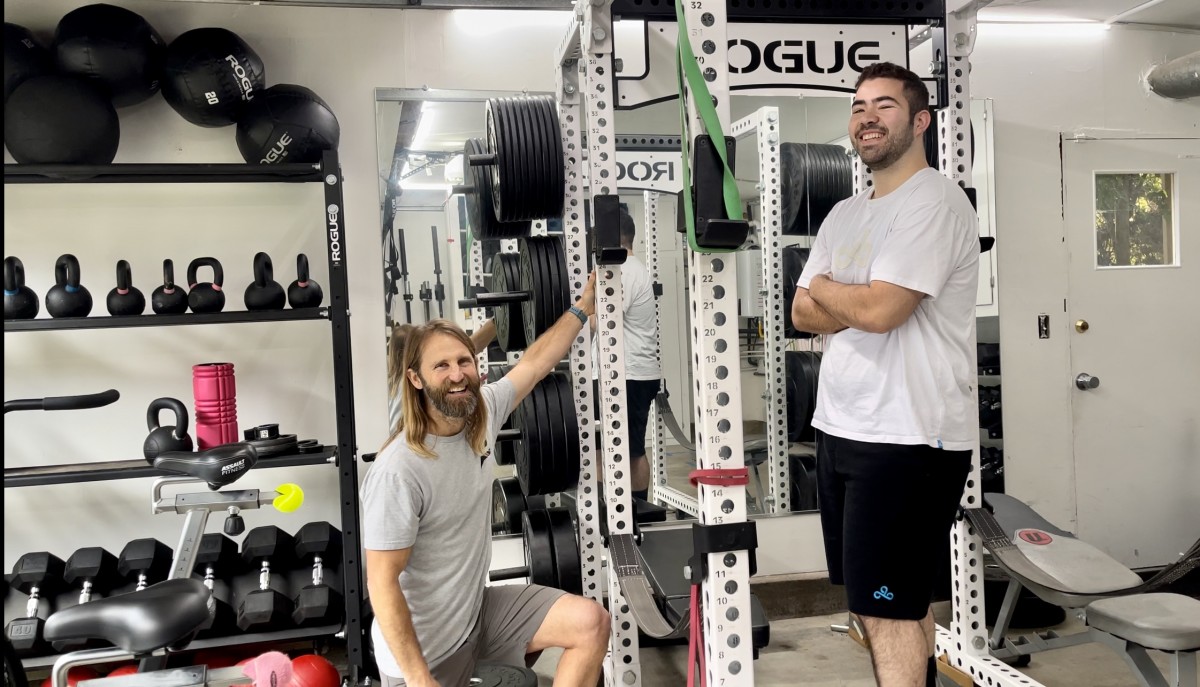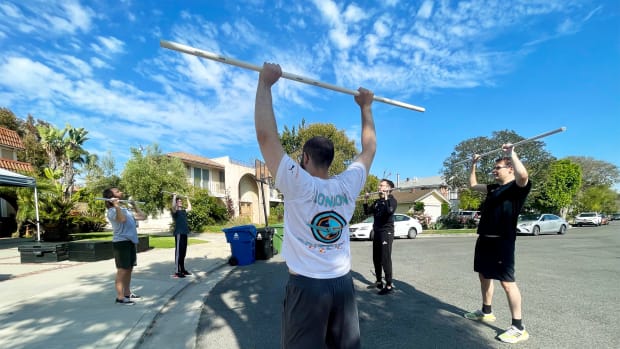How to Stay Fit While Gaming

“Staying fit in a gaming lifestyle”. This title in itself is a bit of a dichotomy. The nature of gaming is quite the opposite of being physically active and it’s not what you would picture when you think in your mind's eye of a “fit” individual. But there is a lot of utility, benefit, and opportunity in being fit while partaking in a gaming lifestyle. Let’s dive in a little bit deeper about why we would want to stay fit while gaming.
To learn more about staying healthy while gaming, visit our friends at FITGMR.gg!
The significance of physical activity
Gaming is not a particularly physical activity. There is a small requirement of physical exertion required to manipulate the controlling device, but on the whole, it is largely a cognitively demanding activity. Therefore, when working with gamers we do not expect them to do an arduous amount of exercise, like running half-marathons, and lifting weights like a powerlifter, unless that is what they want to do. Instead, we're looking for them to adopt a level of physical activity that will provide them with all of the beneficial byproducts of exercise upon their body that we are all well aware of.
Imagine if there was a pill that you could take that would improve memory function [1], enhance the neuroplasticity of the brain [2], reduce stress, reduce symptoms of depression and anxiety [3], increase attention [2], help your muscle growth [4], improve your aerobic fitness [5] and help you live longer [6]. Sounds great, right? You would most likely go out and buy some immediately. This already exists, it’s not a pill but in the form of exercise. There are several reasons why we encourage gamers to do some physical movement.
The common suspects are the overall positive effects on physical health: improved aerobic capacity, more efficient heart and respiratory system, stronger muscles, lower blood pressure, and many other physiological changes. Physical activity has some other great benefits that are largely overlooked or unknown, and this is what it does to the brain. Improved aerobic capacity increases how much oxygen you can use, which makes it easier for your brain to function during high-pressure game situations like a 1v3. Having better cognitive functions such as visual attention, better decisions making and memory isn’t a bad thing when it comes to gaming.
Sedentary behaviors affect the body
There is no way around it, gaming is sedentary by nature, meaning we are not standing up and moving around unless it is a virtual reality game. The term “sitting is the new smoking” has been thrown around by researchers in this area. This is in reference to the well-established negative effects of continuous sitting on physical health, which increase the risk of cardiovascular disease, type 2 diabetes, and some forms of cancer [7]. But it is not just those factors that have us concerned. Sitting for prolonged periods changes how the brain functions and not in a good way. Executive function (cognitive control of behavior) has been shown to decrease after 2 hours of continuous gameplay.
Executive function is critical for success in gaming, as it allows us to prepare, plan, and interpret what is happening in the game. If our ability to anticipate our opponent's next move and to react is impaired, then that is not great for our success rate. Researchers assessed the cognitive function of a group of men and women who played a first-person shooter game for a prolonged period of time (2 hours or more) [8]. After prolonged playing, the subjects in the study made a significantly higher number of errors and were less accurate. This result goes against the commonly encouraged notion in the esports scene of the grind. The grind is the mindset that you can only improve by playing a specific game as much as possible for as long as possible. Where it actually seems to be the opposite, to get the maximum out of a session, you should take breaks, regularly.

It is important to note that the break should not be alt-tabbing out of the game and loading up YouTube or some other application. But rather, standing up from the computer and walking around. The actions taken during a break period actually has a large influence on our subsequent in-game performance. The reason for the emphasis on walking around is based on the results of a study published in 2021 [9].
The study that showed the decline in executive function that is seen with prolonged sitting can be recovered by simply walking around for 6 minutes. Not running, not lifting weights, just walking. The main mechanism is still being investigated, but it is hypothesized that movement in the form of walking helps to increase blood flow to the entire body, including the brain, helping to recover saturated cellular processes in the brain that control executive function.
Nutrition and Hydration
Nutrition is such a huge topic and can be a bit of a delicate topic for some, but it is so vital to our health and performance. Proper hydration and good nutritional habits can improve focus, cognitive function, and overall physical health. Excess consumption of highly caloric food and drinks can lead to weight gain, mainly fat mass, which can have negative consequences on an individual's metabolic and cardiovascular health. Additionally, different foods have varied effects on the way the brain functions. Optimizing food intake, types of foods, and hydration strategies for optimal performance will aid in improving focus, cognitive function, and overall physical health.

Sleep and non-sleeping recovery
We all need to sleep. It is essential for recovery and our overall well-being. Gaming activities tend to carry on throughout the night when the largest amount of players are online playing. With that in mind, it can be hard to maintain a consistent sleep schedule for gamers. But players that have a consistent sleep schedule, take regular breaks between games, and engage in recovery activities such as meditation will help them be more mentally resilient. This in addition to all of the wonderful positive effects of sleeping well has on the body and cognition.
Mental Health and Stress Management
The high cognitive load and high-pressure gaming environment can increase stress and anxiety symptoms. Having a structure and plan in place to allow time to take care of the body and the mind, time for recovery, learning skills and techniques to manage stress can do wonders for mental health and well-being. It has been established in the scientific literature that active and more fit individuals are biologically and psychologically more resilient to psychosocial stressors of daily life [10].
Physical activity has an antidepressant-like effect that can help to regulate mood. But even more overlooked is the utility of having a robust mental tool kit to deal with stressful situations and regulate one’s own current mental state. The services of a mental skill coach or sport psychologist are greatly underutilized within the gaming and esports scene. These are specialists who are able to help with motivation, stress management, visualization, effective teamwork, and other psychological factors affecting performance. As stated earlier on, gaming is highly cognitive. Victory can be determined by split-second decisions.
This layered on with the complexity and layers of information coming in that need to be processed, it is clear to see why tempers and emotions run high for some competitors. Being adept in these fundamental tenets of mental skill will not only aid in gaming performance but in life.
So it seems from this brief overview that staying fit in a gaming lifestyle is essential for maintaining general health and optimizing performance. Regular physical activity, good nutrition and hydration, adequate sleep and recovery, and effective stress management are all essential components of a healthy gaming lifestyle. Gamers who prioritize their physical and mental well-being are better equipped to succeed in the fast-paced, high-pressure world of gaming, and can maintain optimal cognitive function and overall health throughout their gaming career.
You can find out more about staying fit while gaming at FITGMR!
